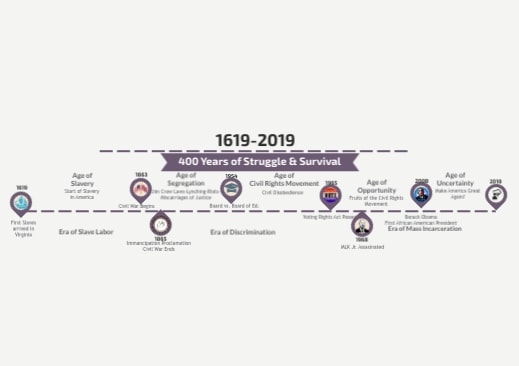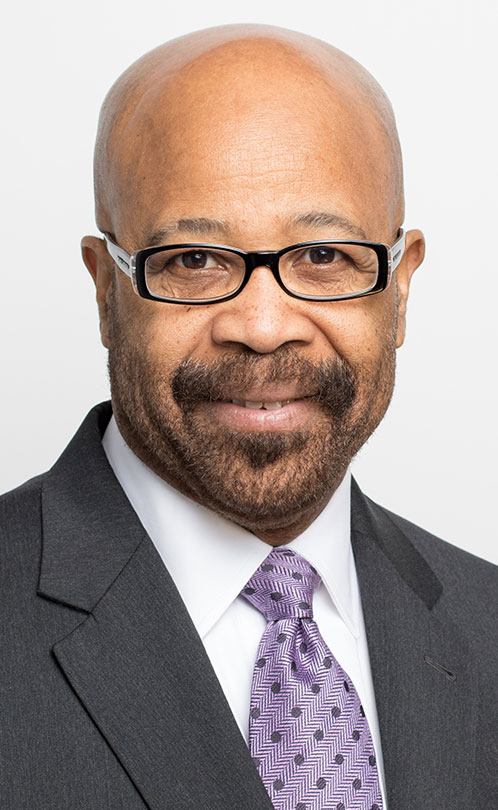
1619-2019: 400 YEARS OF STRUGGLE AND SURVIVAL


Slavery has been called “America’s original sin” and it took a war to legally bring it to an end. Yet the abolition of slavery did not significantly alter the way blacks in this country were perceived and treated by the majority culture. Throughout the 20th century people of African descent were still fighting for their civil rights, including the right to vote.
Discussions of the way people of African descent have been treated in this country trigger deep, raw, and strong emotions. Charges of racism have been hurled at the current occupant of the White House for the disparaging things he has said about black people and the countries from which they come. White nationalism and supremacy are permeating the country right now, and the movement called Black Lives Matter and countless killings of unarmed black men by white law enforcement officers provide convincing evidence that race is still one of the most stubborn and divisive realities of American society and culture.
Does the past matter? Is it helpful to have candid conversations about slavery, its vestiges, and its legacy? What goodwill is generated by such talk? Not surprisingly, many whites would rather not talk about the “Peculiar Institution,” with some wanting to expunge the black experience in America from the social and historical records. A fair number of whites believe that they should not be indicted or held responsible for the actions of their forebears and contend that blacks have no one but themselves to blame for their status in society.
It is unarguably true that slavery fundamentally framed America and that race, to this day, is the single, most determinative factor in and of American life. The anniversary of the arrival of the first slaves in America should give all Americans cause to pause and reflect on race relations in this country and to ponder the hauntingly probing question of the late Dr. Martin Luther King, Jr., “Where do we go from here?”
Is there anything to commemorate or celebrate about the start of slavery in America? August 2019 should not go by unnoticed. For starters, African Americans can celebrate their survival in the west, brought on in good measure by their inner strength and resilience, as well as by their ability to rebound and press on in spite of difficult situations. We can celebrate our 400-year sojourn in this country as a rendezvous with the God of Judaeo-Christianity, known in the black experience as the God of the oppressed.
African Americans never would have made it had it not been for this God (Psalm 124:1). The central role of the church in the life of the African American community is another reason to celebrate. From the time it existed as the “Invisible Institution,” the black church has been an oasis of self-determination and self-reliance in the desert of oppression and disenfranchisement that defined black life in this country. Black churches have been healing balms and salves to hurting souls, seasoning their saga of struggle with hope that a better day was coming.
In the end, it would be tragic if the 400th anniversary of the arrival of the first African slaves on American soil led to more misunderstanding and further division of blacks and whites. Instead, let us pray that a reflection on the ugly past and difficult present will lead to a commitment to work for a brighter future.
R. Clifford Jones
Pastor/President
